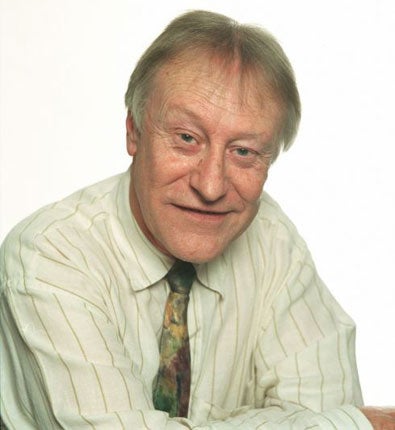Malcolm Laycock: Broadcaster who parted company with the BBC in a row over the age of Radio 2's target audience

Your support helps us to tell the story
From reproductive rights to climate change to Big Tech, The Independent is on the ground when the story is developing. Whether it's investigating the financials of Elon Musk's pro-Trump PAC or producing our latest documentary, 'The A Word', which shines a light on the American women fighting for reproductive rights, we know how important it is to parse out the facts from the messaging.
At such a critical moment in US history, we need reporters on the ground. Your donation allows us to keep sending journalists to speak to both sides of the story.
The Independent is trusted by Americans across the entire political spectrum. And unlike many other quality news outlets, we choose not to lock Americans out of our reporting and analysis with paywalls. We believe quality journalism should be available to everyone, paid for by those who can afford it.
Your support makes all the difference.By employing cutting-edge presenters, sometimes with disastrous consequences, BBC Radio 2 has been modernising its output. It wants to be seen as a trendy station for the mid-twenties and above. Generally, this has been effective, making it "the most listened to radio station in the UK", but many long-time favourites have been axed. In July this year, Malcolm Laycock's celebration of pre-war dance band music, Sunday Night At 10, was removed from the schedules, and he was replaced by a rather more contemporary look at swing music from Clare Teal.
Malcolm Laycock was born in Yorkshire in 1939 and following university, he became a schoolteacher. He began broadcasting with the BBC in the late 1960s and, in 1972, he became a staff producer at BBC Radio London, often hosting current affairs programmes. He presented The Swinging Years on Radio London and a jazz programme on the World Service and assiduously applied himself to learning as much as he could about the music.
He left the BBC to help established Jazz FM and he worked for them for some years, winning a Sony award for his programme, Billie Holiday In Her Own Words. In 1995, Laycock took over Sunday Night At 10 from Alan Dell, who had died unexpectedly. He also made documentaries for Radio 2 including an hilarious one on board Gilbert Bécaud's yacht where the singer plied him with champagne during the interview.
On Sunday Night At 10, Laycock spend the first half-hour on British dance band music from the 1920s and 1930s, which included such key bands as Ambrose and Lew Stone and the vocalists, Al Bowlly and Sam Browne. This was followed by half an hour of Big Band music from the likes of Glenn Miller, Benny Goodman and Laycock's favourite, Count Basie. The programme had 350,000 listeners and its popularity, no doubt, contributed to Laycock being made a Freeman of the City of London.
Laycock was President of the Big Bands Windsor Appreciation Society and every year he would organise a quiz with the neighbouring societies. He was the vice president of the Syd Lawrence Society and he would travel with the Syd Lawrence Orchestra to compère their concerts. He compiled many CD reissues and he wrote a column for the magazine Big Bands International.
In November 2008, Laycock was instructed to change the format of the programme so that it only covered post-war swing bands up to the present day. As a freelance broadcaster, Laycock was being paid for scripting and presenting 48 programmes a year for £24,000. Earlier this year, he asked for a 60 per cent rise because he felt he was researching as well as presenting his programme.
This was refused and when the programme was about to take a summer break in July, he resigned on air. Teal, his summer replacement, was asked to present the show permanently.
In fact, Laycock's private life was in turmoil as he was nursing his wife, who died in September from cancer after a four-year illness.
As a broadcaster, Laycock told listeners little about himself or his concerns. Now, however, he spoke to national newspapers about how unfairly he had been treated by the BBC. He spoke acrimoniously about the steady encroachment of rock music throughout Radio 2, saying, "The BBC has gone off the rails. It's a great big oil tanker that is careering in the wrong direction." The BBC pointed out that they could meet his salary demands and would have been happy for him to continue.
According to his fellow broadcaster, Stuart Colman, Laycock "was a delightful man, always upbeat, always smiling and always encouraging others". Laycock, more than anyone, would have been saddened by the turn of events.
At the time of his death, he was planning to visit America to see his family.
Spencer Leigh
Malcolm Laycock, broadcaster: born Yorkshire 1 November 1939; married (wife deceased, two sons); died London 8 November 2009.
Join our commenting forum
Join thought-provoking conversations, follow other Independent readers and see their replies
Comments